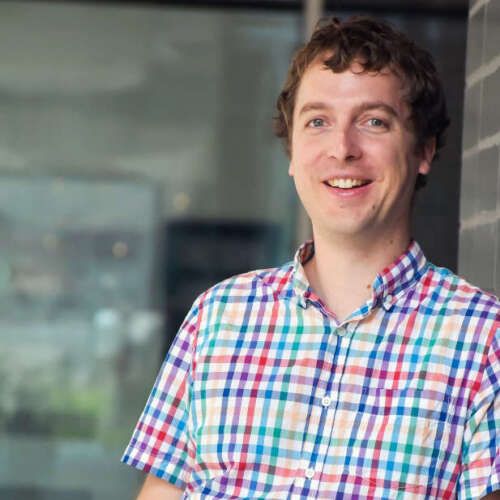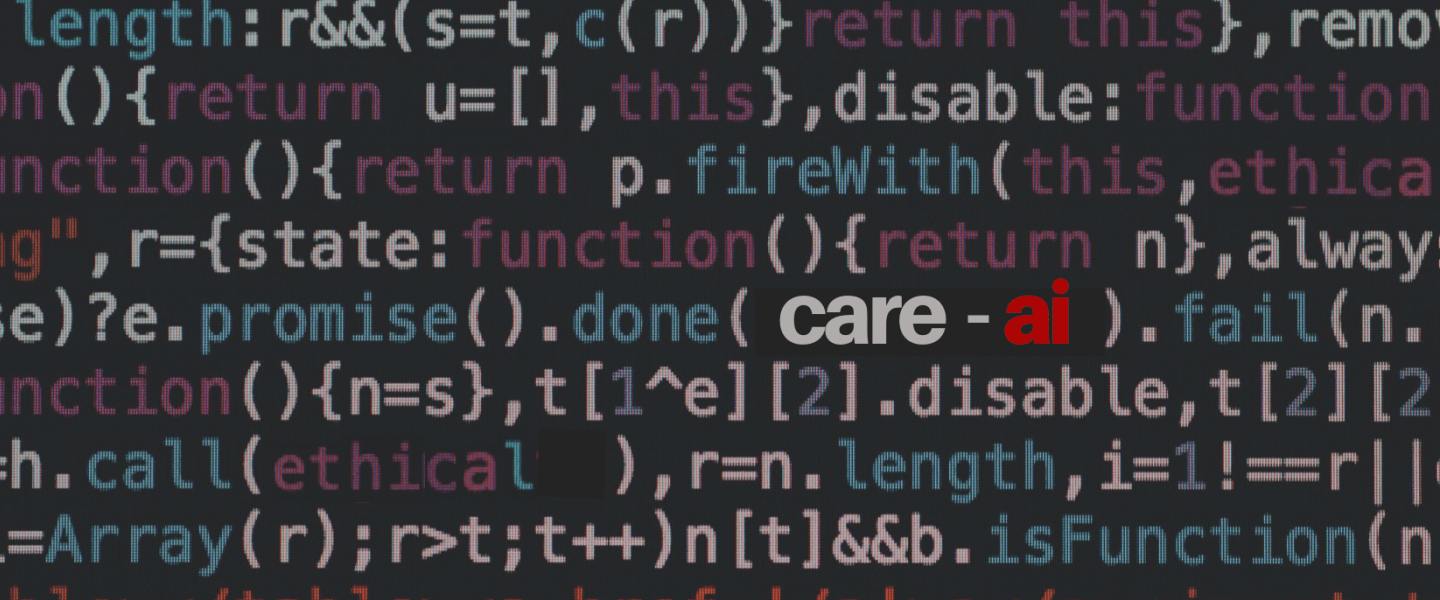Ensuring individuals understand ethical uses of artificial intelligence (AI) in a range of fields is the goal of a new training initiative being launched this year at the University of Guelph.
TD Bank Group (TD) has committed $1 million over the next five years for researchers affiliated with U of G’s Centre for Advancing Responsible and Ethical Artificial Intelligence (CARE-AI) to launch AI training modules for mid-career professionals and entrepreneurs.
Called “CARE About AI,” the series of modules is intended to train users to employ data effectively. In turn, those professionals will enable their businesses and organizations to recognize and address ethical challenges posed by the increasing use of AI from data privacy concerns to potential biases in hiring and promotion.
“Through the TD Ready Commitment, the bank’s corporate citizenship strategy, we believe in helping create the conditions people need to succeed and fully participate in a changing world,” said Amy Hanen, associate vice-president, social impact (Canada), with TD Bank Group.
“We’re pleased to support U of G’s CARE About AI initiative that will help increase ethical AI competencies and build upon TD’s long history of investing in and supporting the innovation ecosystem in Canada. Through CARE About AI, mid-career professionals and entrepreneurs will have the ability to learn new skills and gain increased understanding of AI, which can support their professional growth and development.”
Training to equip workers with AI skills

The funding will support the development of three levels of AI training as well as delivery costs for this new program, said Dr. Graham Taylor, a professor in the School of Engineering within the College of Engineering and Physical Sciences and academic co-director of CARE-AI.
He said the training will help equip workers with judgment and data literacy skills that are increasingly required as businesses and other organizations turn to AI for varied uses.
“The world is changing,” Taylor said. “More jobs are being affected by automation and people are increasingly working with algorithms. People will need to develop various levels of competency to wield AI-driven tools used for prediction or decision-making.”
For instance, HR workers may use an AI system to help screen job applicant résumés. Manufacturers use such systems for part quality, and post-secondary institutions are considering systems for assessing prospective students or scholarship recipients.
As AI becomes increasingly pervasive, said Taylor, mid-career professionals will need this knowledge to improve their career opportunities. “Even if they are not building the tools, they are still expected to make use of them in the course of their daily work,” he said.
“We feel strongly that developing responsible AI is a task not only for academics and researchers, and we are appreciative of TD’s support to help us ensure this type of training is available to the public,” said Dr. Gus Skorburg, professor in the Department of Philosophy within the College of Arts and academic co-director of CARE-AI.
The new U of G training program will incorporate ethical aspects of AI, unlike various paid and free courses already available that focus mostly on technology. Offered mostly online, the three-tier, progressive program will enable users to complete modules at their own pace and at the appropriate level.
New program offers three training levels
Organizers hope to launch entry-level training by this fall. Taylor said this training level will rely on videos and social media to provide information about the kinds of AI that may be found in workplaces and everyday lives.
Intermediate-level training will involve several hours’ worth of modules intended for managers and HR professionals charged with implementing and overseeing AI systems. Under a hybrid approach, online modules and recorded videos with AI experts will cover privacy and fairness implications for consumers or other users. Quizzes will be used to test trainees’ learning, and the program may include certification.
Taylor said intermediate-level training, to be launched likely in 2023, is projected to reach about 100,000 users.
He said in-depth training to be rolled out over the next two years might reach about 1,000 users.
The highest tier will provide comprehensive training to non-AI experts looking to enter careers related to artificial intelligence. Offered by academic and industry professionals through in-person, “bootcamp”-style sessions, the training will conclude with certification.
Launched in 2018, CARE-AI involves more than 90 researchers across the U of G campus applying AI and machine learning to a range of disciplines, including human and animal health, environmental sciences, agriculture and agri-food, business and the bio-economy. The group also works with partners in other academic institutions as well as industry.
Related U of G research projects in AI and machine learning span initiatives to reduce the carbon footprint of training AI systems, human-computer interactions, data analytics, sensors and robotics.
Contact:
Kevin Matsui, P. Eng.
CARE-AI managing director
kevin.matsui@uoguelph.ca
